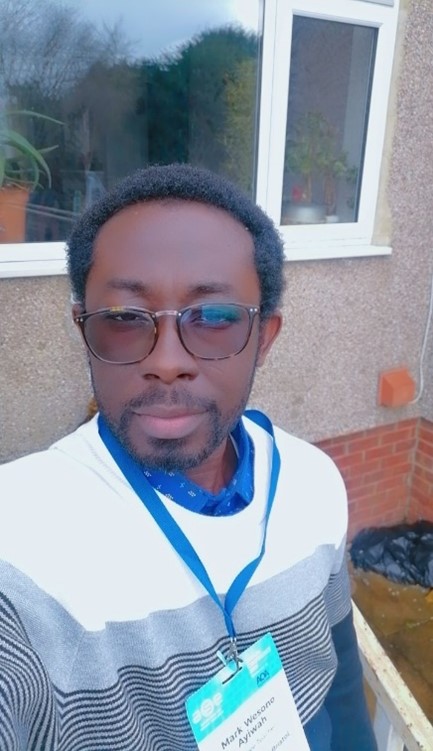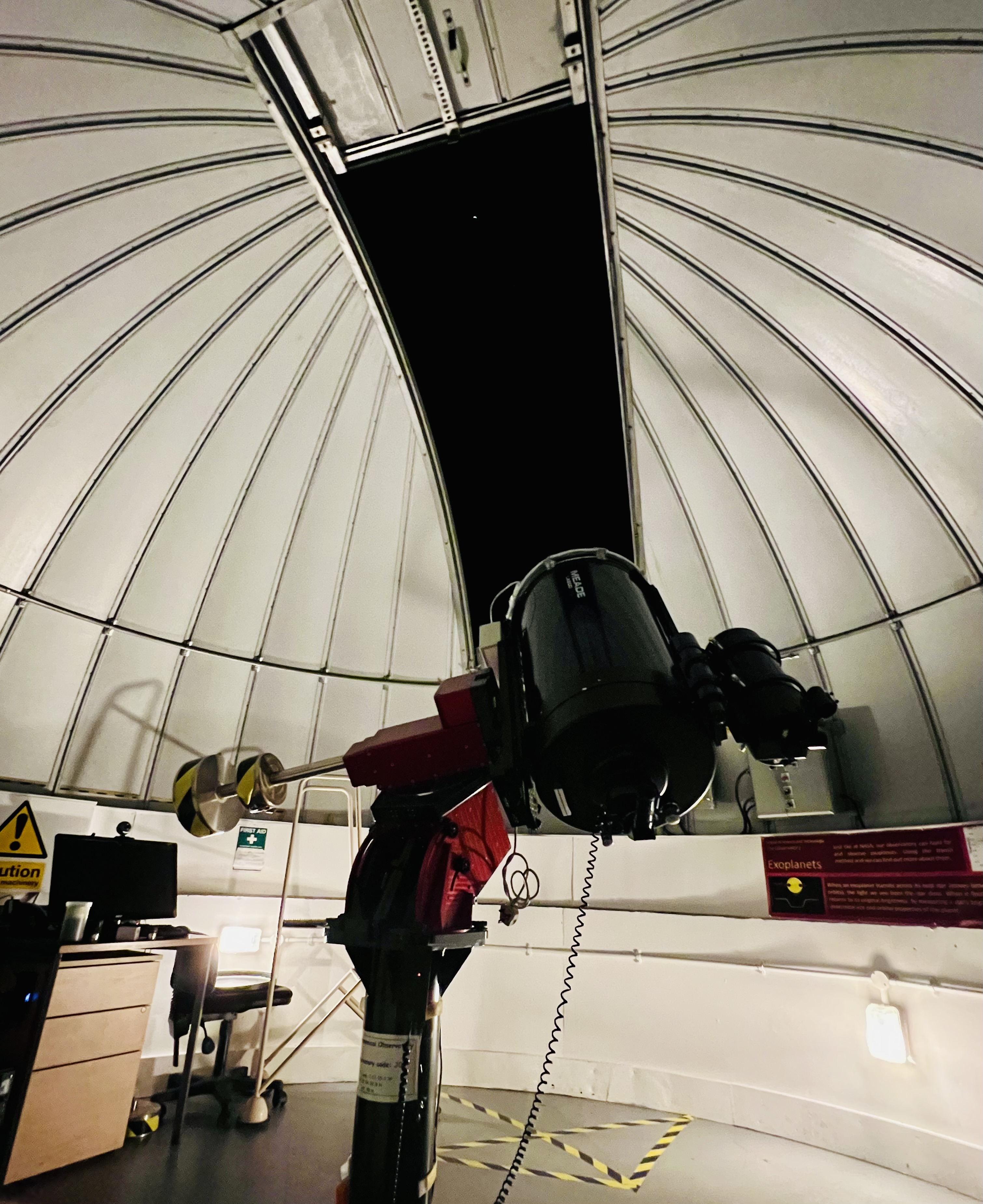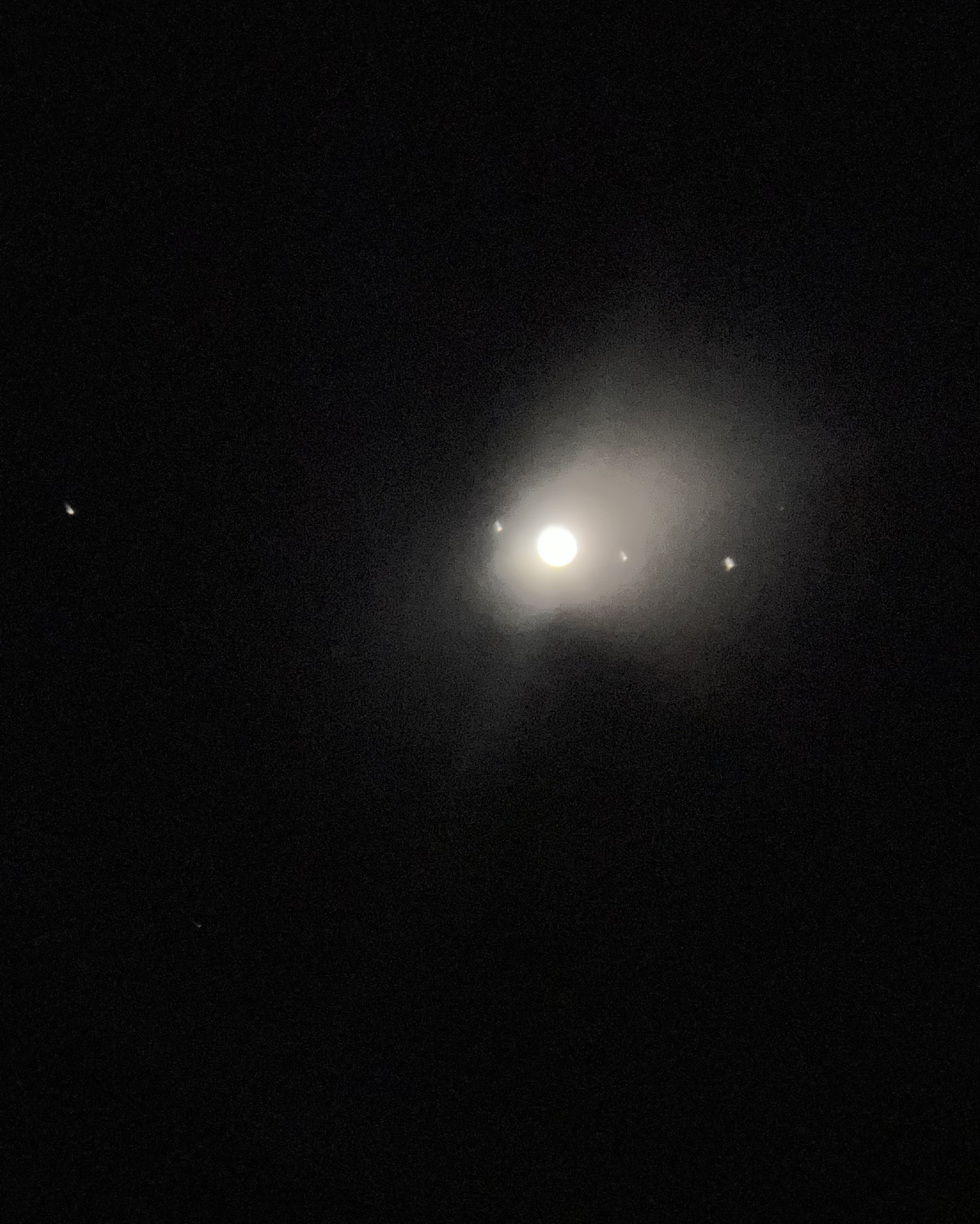John Barker Award winners share their conference highlights

Thanks to the generous legacy of one of our long-standing supporters and members, John Barker, we were able to offer a couple of trainees a bursary of up to £150 to cover the cost of travel and/or accommodation at ASE Annual Conference 2025.
This year's winners have written up their conference experiences and shared some of the session highlights and insights.
The John Barker Award will be open again for one trainee teacher to attend ASE's 2026 Conference in January 2026. The bursary is up to the value of £150 towards any travel or accommodation costs for attending conference. Applications will open this autumn.
 My name is Mark Ayiwah, and I am currently a postgraduate student at University of Bristol, UK. The conference provided a fantastic opportunity to engage with experts in the field of science, explore innovative teaching strategies, and reflect on ways to enhance science education.
My name is Mark Ayiwah, and I am currently a postgraduate student at University of Bristol, UK. The conference provided a fantastic opportunity to engage with experts in the field of science, explore innovative teaching strategies, and reflect on ways to enhance science education.
I attended a session that really made me think: the ECTs Keynote, delivered by Natasha Serret, which posed the question, "Should Practical Work Be Like Recipes?" This session called into question the traditional "recipe-style" approach to practical work and advocated instead for an inquiry-based method where students explore, question, and develop their understanding of the material through experiments. Hearing Natasha make a case for this approach in the context of the UK education system was really powerful; it gave me a new perspective on how to engage students in the scientific process during practical sessions.
A prominent session was AI, Science Education, and Dialogue by Rupert Wegerif. With the swift advancement of artificial intelligence, this session provided precious insights into how AI can be harnessed to power classroom dialogue and student engagement. I was moved by the session's exploration of using AI to facilitate in-depth learning conversations around science lessons, and I am excited to think about ways to do something similar in my own classes.
I also took part in AQA: Supporting ITT – Understanding GCSE Science Assessment, which provided a much clearer understanding of assessment objectives and the sorts of typical misconceptions students have with science. This was brought back into my school placement and has been very useful there. I am now able to have my students concentrate on the sorts of things that will actually help them pass the GCSE exam in science.
The exhibition stands were valuable as other sessions of the conference. I went to Explorify, Discover Materials, Science in Schools, Oak National Academy, Espire Education, Educake, IET Education, and many more. I often download resources from the Oak National Academy, and it was great to see the wealth of support available for science teaching on offer in these exhibition stands.
In total, the conference was an overall experience of great value that has had a positive influence on my teaching of physics. I departed feeling quite inspired and with a new infusion of ideas to create engaging and meaningful learning experiences for my students.
BY MARK WESONO AYIWAH
I was delighted to attend my first ASE Annual Conference in January, having only joined the Association last year. After nearly two decades of a career in academia and industry, I decided to change careers and began a part time PGDE with the University of the Highlands and Islands in August 24. This is a fantastically flexible new ITE course that allows student teachers to study remotely from anywhere in Scotland. While allowing me to balance retraining with the demands of a young family, the downside is missing out on the collegial spirit and camaraderie of attending lectures on campus with fellow students. Attending events such as those organised by the ASE therefore give me a crucial opportunity to engage and network with the wider science education community.
I made the trek down to Nottingham from chilly Scotland and set foot on a university campus for the first time since submitting my final PhD thesis fifteen years ago! I was a little nervous about whether a recovering geophysicist and mature student teacher would fit in, but I needn't have worried. The whole ethos of the meeting was welcoming and supportive. In fact it was a joy to be immersed in a community who shared my passion and dedication to science and education.
It was wonderful to hear from current academics like Professor Philip Moriarty, who swept us up in a whirlwind of enthusiasm, from manipulating atoms through to the perils and power of ChatGPT. The Sixty Symbols YouTube channel he introduced me to has been helpful for refreshing some of the rustier corners of my physics knowledge. I picked up lots of tips in practical sessions such as Bringing Quantum into the Classroom (Alan Denton and Miles Hudson) and CLEAPSS: Physics Practicals that Work (Samir Moezzi). I have already put many of them into practice on placement.
 Some of the most inspiring sessions for me were those delivered by Eleanor Wylie, Sue Woolhouse and Kerry Colyer on Top Tips for Inclusive Science Teaching and Unlocking student success: The hidden
Some of the most inspiring sessions for me were those delivered by Eleanor Wylie, Sue Woolhouse and Kerry Colyer on Top Tips for Inclusive Science Teaching and Unlocking student success: The hidden

power of teaching physics hinterland. They collectively articulated so many of my own thoughts, reflections, ambitions and motivations around the kind of teacher I want to become. It was my first time learning about the science capital teaching approach and I already feel this becoming a fundamental pillar of my teaching practice. I am also writing my PGDE practitioner enquiry on the impact of an element of science capital teaching on my BGE students, an idea which seeded during the conference.
We were lucky to have excellent observing conditions for our trip to Nottingham Trent University Observatory. Dr Daniel Brown and his students treated us to excellent views of Mars, Saturn, our Moon and Jupiter plus its four Galilean moons; Io, Europa, Ganymede and Callisto.
Coffee breaks were equally fruitful, connecting me to the active IoP network in Scotland. I am now on prolific email lists and have further CPD and meetings lined up, making me feel part of the physics teaching community "up here". I would encourage other student and early career teachers to attend the Annual Conference in the future and I am looking forward to the ASE Scotland Conference in Kinross in May.
Dr Heather Forgan, PGDE Student, UHI
